Penis Augmentation in Tunis
Search and Compare the Best Clinics and Doctors at the Lowest Prices for Penis Augmentation in Tunis
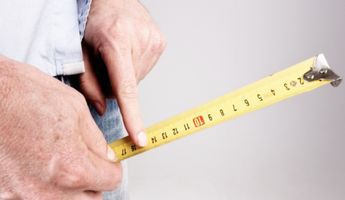
Find the best clinics for Penis Augmentation in Tunis
No clinics available
Egypt offers the best prices Worldwide
Price: $ 500

Clinic Apollon, located in Boulevard Mohamed Bouazizi, Tunis, Tunisia offers patients Penis Augmentation procedures among its total of 90 available procedures, across 1 different specialties. Currently, there's no pricing information for Penis Augmentation procedures at Clinic Apollon, as all prices are available on request only. All procedures and treatments are undertaken by just a small team of specialists, with 2 in total at the Clinic, and they are not accredited by any recognized accreditations institutes
Compare Before & After Photos of _procedure_photos.phpPenis Augmentation
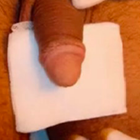
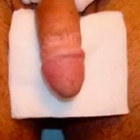
Front view
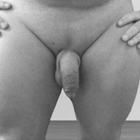
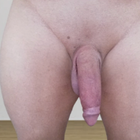
Front view
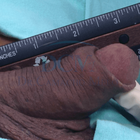
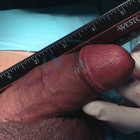
Half-side view
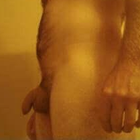
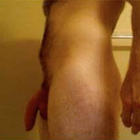
Full-side view
WHY US?
At Medijump, we're making medical easy. You can search, compare, discuss, and book your medical all in one place. We open the door to the best medical providers worldwide, saving you time and energy along the way, and it's all for FREE, no hidden fees, and no price markups guaranteed. So what are you waiting for?

Free

Best Price

Widest Selection

Risk-Free
What you need to know about Penis Augmentation in Tunis
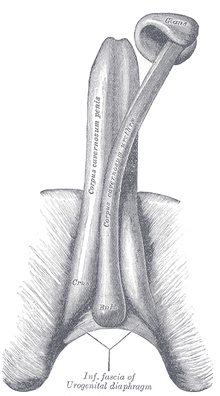
Also known as a Penis Enlargement, Penis Enhancement, Phalloplasty or the Penoplasty and involves any technique aimed to increase the size of the penis, where some procedures aim to increase total length, others may increase the shaft's girth. The Penile Implant is an alternative technique that is more common among those with erectile dysfunction. The procedure is performed under general anesthetic and can be completed in 45-60 minutes.
The most common procedure involves lengthening the flaccid penis by releasing the muscle at the Mons Pubis, but there is also the option for a fat transfer, which combined with liposuction, is particularly useful for increasing the girth. Note that these procedures aide in increasing the length of the flaccid penis only, the erect length remains the same.
To increase the length of the erect penis, a form of penile disassembly is required, where the head is detached and the extra tissue is grafted into the shaft - this technique takes longer and is more expensive. All techniques require two nights of hospitalization and a recovery time of 10-14 days in Tunis.
What is the cost of Penis Augmentation in Tunis?
The expense related to the Penis Augmentation in Tunis can differ based on many factors. These encompass the particular details of the operation, the competency of the medical professional, and the amenities provided by the selected healthcare center.
Although being mindful about cost is logical, it's vital not to sacrifice the standard of treatment. A credible healthcare institution will be clear about the expenses, offering you an itemized elucidation. Additionally, it's beneficial to explore if your medical insurance provides any coverage for the operation or related care.
What does a Penis Augmentation Procedure Involve?
Before proceeding with the surgery, you will have an extensive consultation with your surgeon to determine whether the procedure is suitable for you. You will discuss your expectations and it is important to be realistic to avoid disappointment. You should also inform your surgeon about the reasons why you want to undergo the surgery. Your surgeon will get you to do a physical examination to find out if you have any medical conditions and to help your surgeon evaluate the best treatment option for your specific case.
During the surgery you will be given general anesthesia, meaning you will be asleep and will not feel anything. The most common types of penis augmentation surgery are:
- Penis girth surgery is aimed to increase the thickness of your penis in a flaccid and erect state. Your surgeon will perform a small liposuction procedure to harvest fat from the abdomen, thigh, or buttock. The fat is then purified with a system to improve the quality of the fat. The last step is distributing the fat along the shaft of the penis to thicken it. Some studies claim an increase in girth of around 1.4 cm to 4 cm.
- Penis length surgery can give the flaccid penis an average of 2 cm, but it cannot change the size of the erect penis. During the surgery, your surgeon will cut the ligament where the penis is attached to the pubic bone. Then, your surgeon will perform a skin graft at the base of the penis to allow for extra length.
-
Liposuction is a surgical procedure to remove fat from below the abdomen which can reveal up to 2 cm of the penis that had previously been buried. By removing excess fat around the pubic area, a partly buried penis can appear more prominent. This procedure works well with men who have a large tummy. However, if the man puts on weight again, the fat will return to the pubic area and may bury the penis again.
-
Penuma is a device inserted under your penis skin to make it longer and wider. It is crescent-shaped and made of medical-grade silicone. It comes in three sizes: large, extra-large, and extra-extra-large. It will be designed to fit your penis shape. Your surgeon will make an incision in your groin area just above the base of your penis to insert the Penuma. The device will stretch the penis skin and tissues to make your penis look and feel larger. If you are not already circumcised, you will need to do it before the procedure.
How Long Should I Stay in Tunis for a Penis Augmentation Procedure?
In general, it takes around 45 minutes to an hour to complete a penis augmentation. You may go back to your hotel on the same day of the surgery after the effects of the anesthesia wears off. However, there are some cases where the patient will require a two nights stay at the hospital.
Plan to stay in Tunis for at least 10 to 14 days. During your stay, it will allow for the initial recovery and you will attend follow-up checkups.
What's the Recovery Time for Penis Augmentation Procedures in Tunis?
You will need to take some time off work after this surgery, normally one week if your job does not involve any physically demanding activity. If your job involves a lot of moving around, you can go back within 2 weeks.
Avoid any strenuous activity, including exercise for around six weeks. Do not have any sexual intercourse or masturbation for around four weeks. It may take around three to six months before you will see the completed result.
What sort of Aftercare is Required for Penis Augmentation Procedures in Tunis?
Your surgeon will give you a set of instructions about post-operative care and you will need to follow the instructions. Pain and soreness following the surgery are normal and your surgeon will give you painkillers to control the pain. A surgical dressing will cover your penis, which will need changing at intervals.
You will need to keep the area clean, but avoid getting water on the area. Use a flannel or a sponge to clean the area. Your surgeon may ask you to massage your penis on a daily basis to prevent lumps from forming on the surface and to stop it from becoming lop-sided. Avoid heavy lifting and other strenuous activity and wait for a month before you resume any sexual activities.
What's the Success Rate of Penis Augmentation Procedures in Tunis?
The success rate is high and the procedure can give the patient a significant confidence boost. Patients often cite the improvement of premature ejaculation (sexual stamina) and increased libido. Feeling and sensitivity are not affected and the patient is still able to ejaculate as normal, therefore the chances of conceiving are not impacted. A study found that 81% of patients who had Penuma rated their results high or very high.
For an animated display of how the penis augmentation procedure works with before and after images, watch this short video.
Are there Alternatives to Penis Augmentation Procedures in Tunis?
The penile implant is an alternative technique, but it is more common among those with erectile dysfunction. Non-surgical alternatives to this surgery are pills, lotions, vacuum devices, penile extenders, and jelqing (stretching techniques). However, no study confirms the success of those procedures.
What Should You Expect Before and After the Procedure
Familiarizing yourself with the anticipation of the Penis Augmentation can substantially decrease stress and better equip you physically and emotionally. Before the process, you'll undertake an in-depth conversation with your medical expert, discussing the procedure, potential hazards, and projected results. They will mentor you on the essential preparatory steps, which might encompass advice on nutrition and lifestyle patterns. It's crucial to abide by these guidelines to set the best possible environment for a triumphant procedure and speedy recovery.
After the Penis Augmentation, it's ordinary to feel some level of discomfort, inflammation, or bruises, which are expected after-surgery responses and part of the natural recovery course. Your medicinal specialist will hand over comprehensive after-surgery care instructions, including medicines timings, relaxation, proper diet, and sleep positions. Complying entirely with these instructions can encourage a speedy recovery and lessen possible complications.
What are Potential Risks of Penis Augmentation?
Nonetheless, there are still risks and complications that you will need to be aware of.
- For penis length surgery, the cut ligament may not provide the support it originally did, which could lead to less satisfactory erections. In addition, it can also cause pain during sex.
- For girth surgery, some patients may experience scarring, disfigurement, infection, and lumpiness.
- Other complications include implant coming apart, and blood cloth.
Whilst the information presented here has been accurately sourced and verified by a medical professional for its accuracy, it is still advised to consult with your doctor before pursuing a medical treatment at one of the listed medical providers
No Time?
Tell us what you're looking for and we'll reachout to the top clinics all at once
Enquire Now

Popular Procedures in Tunis
Prices Start From $95

Prices Start From $556

Prices Start From $1,795

Prices Start From $1,000

Prices Start From $322

Prices Start From $275

Recommended Medical Centers in Tunis for procedures similar to Penis Augmentation

- Interpreter services
- Translation service
- Religious facilities
- Medical records transfer
- Medical travel insurance
- Health insurance coordination
- TV in the room
- Safe in the room
- Phone in the room
- Private rooms for patients available

- Interpreter services
- Translation service
- Religious facilities
- Medical records transfer
- Medical travel insurance
- Health insurance coordination
- TV in the room
- Safe in the room
- Phone in the room
- Private rooms for patients available

- Interpreter services
- Translation service
- Religious facilities
- Medical records transfer
- Medical travel insurance
- Health insurance coordination
- TV in the room
- Safe in the room
- Phone in the room
- Private rooms for patients available

- Interpreter services
- Translation service
- Religious facilities
- Medical records transfer
- Medical travel insurance
- Health insurance coordination
- TV in the room
- Safe in the room
- Phone in the room
- Private rooms for patients available

- Interpreter services
- Translation service
- Religious facilities
- Medical records transfer
- Medical travel insurance
- Health insurance coordination
- TV in the room
- Safe in the room
- Phone in the room
- Private rooms for patients available

- Interpreter services
- Translation service
- Religious facilities
- Medical records transfer
- Medical travel insurance
- Health insurance coordination
- TV in the room
- Safe in the room
- Phone in the room
- Private rooms for patients available
Penis Augmentation in and around Tunis
About Tunis
Tunis is the capital and the largest city of Tunisia and is the center of government and administration as well as the center of commercial and cultural activities. It is divided into two parts, the old city known as Medina and the new city or Ville nouvelle. Even though it is located on the southern shores of the Mediterranean Sea, the city does not have many beaches. Still, it has managed to attract millions of tourists in 2018 thanks to its rich history displayed in numerous ancient buildings. These buildings have an enchanting blend of North African and French Architecture that will leave anyone in awe. Many tourists come to see the Roman ruins of Carthage or to stroll around and shop in the Medina.
Tunis is known to have a high standard of healthcare, which attracts an increasing number of medical tourists each year. Many of the medical tourists come from other African countries that have an inferior healthcare system. However, the city’s excellent reputation in cosmetic surgery and dental treatment appeal to many patients from Europe, the Middle East, and Asia. The private medical centers are armed with the best equipment and English speaking staff. The Tunisian Ministry of Health regulates cosmetic and plastic surgeons to ensure that there is a high standard. In addition to exceptional healthcare, Tunis also offer attractive prices for medical treatment and the cost of living.
Popular Areas in Tunis
Although it is the largest city in Tunisia, Tunis can feel like a compact city and can be explored on foot. The city has a number of famous attractions that are always packed with tourists.
- Carthage was founded in the 9th century BC and was once a powerful empire of the Mediterranean as well as home to a wonderful civilization before being destroyed by the Romans in the Third Punic War. It was then to become an important Christian center until the Islamic invaders destroyed it. Today, the ruins have become a UNESCO World Heritage Site that tourists can visit.
- The Medina in Tunis is one of the most remarkable medieval medinas in North Africa. There are over 700 monuments within the area, from mosques to madrassas to historical places. It is easy to get lost in the impressive maze-like alleyways, but tourists are encouraged to admire the Islamic architecture and art or learn more about the city’s history. Tourists can also shop in one of the souqs selling everything from shisha pipes to shoes or enjoy one of the cafes.
- Sidi Bou Saïd is a picturesque cliff-top village with cobbled streets, blue-and-white walls, and glimpses of pristine blue waters. It is probably one of the most beautiful places in Tunisia. The beautiful architecture is a blend of the Ottoman and the Andalusian. It is now a sleepy fishing village perfect for anyone who wants to get away from busy city life. The village has been a gateway for artists, bohemians, and pilgrimage for centuries.
- Bardo Museum is the second-largest museum in Africa and the main attraction of this museum is the ancient Roman mosaics recovered from Carthage. The museum also exhibits Greek statues, artifacts of the region’s Berber, and the accomplishments of the Islamic culture in the country. Other than the exhibitions, the building itself is decorated in impressive historic Islamic decorative arts.
Weather and Climate in Tunis
Tunis has a hot-summer Mediterranean climate meaning the city enjoys warm and sunny weather all year round. The summer can be hot and dry because rain is very rare and the summer usually lasts from June to August and the average temperature is around 25 °C but can get as high as 40 °C. July and August are the high tourist season, especially at the beach resorts. The city begins to get rain in autumn, often accompanied by a short thunderstorm. The winter is the wettest season of the year because it can rain every two or three days and the temperature can drop to 7 °C in the morning and 16 °C in the afternoon. The rainfall decreases in spring, and in March, the temperature ranges between 8 °C to 24 °C and the sunshine usually becomes dominant in May.
Getting Around in Tunis
Tunis-Carthage International Airport is the main airport in Tunisia and the airport connects Tunis with other cities in the country as well as the rest of the world as it serves flights to and from the Middle East, Africa, and major Europeans countries. It is the hub for Tunisair, Tunisair Express, and Nouvelair, but there are not many budget airlines operating flights from the airport. To get to the city center from the airport, tourists can opt for a taxi or bus. The bus is operated by the SNT bus line and departs every 30 minutes. It is very affordable with a single ticket costing less than 1 TND. There is also a more luxurious and expensive bus line known as the TUT bus and the bus departs every 15 minutes. If you want a more private mode of transportation use an airport taxis and they are usually metered.
Tourists have plenty of options to get around Tunis. There is a tram system in the city with inexpensive tickets, usually around .48 TND. However, be aware that it can be packed during the rush hours. Taxis are a good option to get around, the taxis are metered, and the base fare is around .4 TND but can be much more expensive if you hail one off the street.
Tourist Visas in Tunis
Nationals of 97 countries including Australia, China, Singapore, the United States, and Russia can enter and stay in Tunis for up to 90 days without a visa. Other nationalities not listed in the visa exemption agreement are advised to check at their nearest Tunisia embassy or consulate. The country provides an online visa application to simplify the process of obtaining a visa to enter the country.
Additional Information
- Local Currency: Tunisian dinar (TND) is the official currency of Tunisia. 1 USD will get you 2.61 TND.
- Money & Payments: ATMs are widespread in Tunis. Credit Cards, particularly MasterCard and Visa, are accepted in most top-end restaurants, hotels, and shops. Tipping is by no means mandatory but will be greatly appreciated.
- Local Language: Arabic is the official language and French is very common. English is not widely spoken except in tourist areas and hospitals.
- Local Culture and Religion: Most of the population follows Islam, but there are small groups of Christian and Jews.
- Public Holidays: The city celebrates major nationals and Islamic holidays such as Independence Day, Eid Al-Fitr, and Prophet Mohammed’s Birthday.
Popular Searches
- Plastic Surgery in Thailand
- Dental Implants in Thailand
- Hair Transplant in Thailand
- Breast Augmentation Thailand
- Gastric Sleeve in Thailand
- Gender Reassignment Surgery in Thailand
- Laser Hair Removal in Bangkok
- Botox in Bangkok
- Dermatology in Bangkok
- Breast Augmentation in Bangkok
- Coolsculpting in Bangkok
- Veneers in Turkey
- Hair Transplant in Turkey
- Rhinoplasty in Turkey
- Stem Cell Therapy in Mexico
- Rhinoplasty in Mexico
- Liposuction in Mexico
- Coolsculpting in Tijuana
- Rhinoplasty in Korea
- Scar Removal in Korea
- Gastric Sleeve in Turkey
- Bone Marrow Transplant in India
- Invisalign in Malaysia
- Plastic Surgery in the Dominican Republic
- Tummy Tuck in the Dominican Republic
- Plastic and Cosmetic Surgery in Poland
- Rhinoplasty in Poland
- Hair Implant in Poland
- Dental Implants in Poland
- IVF in Turkey
